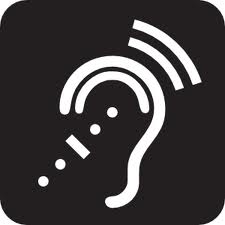Social Media Fears: But what if someone says something awful about us?
Over the past couple of years being both a marketing consultant advising on social media and a social media trainer, training a range of people, different roles and organisations – a question that often pops up is…
“But what if someone says something awful about us…”
Well, with or without social media – those same people saying negative things about your product, service or experience, would be saying it anyway. But instead of you being informed and being given the opportunity to ‘hear and recover the service’ – you wouldn’t know about it.
Admittedly, the ‘reach’ of social does mean that messages spread further, faster – whereby traditionally, perhaps that niggled person may tell 5 – 10 people, now where average numbers of Facebook ‘friends and likes’ is around the 300 mark, then that social networking channel alone enables much more reach. And of course, all the social networking channels are created to make it easy for people to share and communicate – so if one person shares to their 300 contacts, we don’t know how many of those 300 are also going to share with their 300 and so on and so on.
Conversely of course – good news travels fast too.
As a business, how you respond to negative feedback is absolutely fundamental to excellent service delivery, whether the feedback is received online or off.
If you’re not listening – then you’re not able to respond.
By listening you get the opportunity to recover the service – you can respond and engage the negative customer – with the intention of turning that negative into a positive.
For example: I had an issue with my Norton Anti-Virus. It was a really simple query, all I needed was to expand the license to more machines (I wanted to buy more from them). On the Symantec website the only ‘support’ contact give was a telephone number. So, I called it. Having been on hold for over 40 mins – with a droning message of how important I was to them and that they were looking forward to helping me out as they value me (40 minutes on hold - yeah right). Of course, I am sat at my desktop with Twitter open and so I fire off a Tweet along the lines of – “Grrr Symantec been on hold for 40 minutes – not great customer service!”
Within seconds – and I mean literally seconds, @Symantec came back to me – they offered me a link to a live chat screen where the challenge was resolved within a few minutes. So what do I then do?…I go back onto Twitter and say “Well done @Symantec excellent use of Twitter for customer service 5* to you.”
I then also advised them that they should share the fact that support can be managed via Twitter via their website – just adding a simple icon so users know that’s a viable way to connect. Which they did. So for me, Symantec is a brand that are really listening, engaging and responding.
So yes, if your service isn’t up to scratch, people will tell you and they’ll tell others.
Yet, if your service is fabulous – then the same applies.
When I did my Master’s thesis back in 1996 it focused on service recovery and what it means when people complain. Those that complain are vocal – they have ‘buy in and commitment’ to your brand and they complain because they want to get involved to help you fix things.
For every one person that complains, there are 19 that don’t. So you really should be looking, listening, responding and learning if you want to get things right.
If enough people are complaining about the same thing, likelihood is you need to fix it.
The fact that social platforms enable people to get involved with your product, service or brand - to engage, to advise, to consult – then I believe this is a great opportunity for businesses to be learning about what they do right and what they do wrong.
Yes, you’re exposed if you’re out there on the social channels – but you’re also open to learning.
For what feels like decades business academics have been talking about ‘the learning organisation’ as the perfect model. And social really does enable a lot of learning, quickly and really rather inexpensively.
Response times are key on ‘social’ too. Had Symantec not bothered to respond to me for a few hours, or days, then the likelihood is that I would have continued to rant about their awful service delivery – and who knows how that could have escalated. However, they were listening, they responded, they nipped it in the bud very quickly. So the time it takes to respond is a key factor. So, if you’re tracking your brand, via Hootsuite, Twitter or indeed, simply via Google Alerts – then be sure you’ve got someone on the case monitoring.
The goal posts have changed when it comes to reputation management, as a business, you can learn what people are saying very quickly – and indeed, you can now respond very quickly.
My advice to all businesses is don’t put off getting involved with social because you are worried about people saying negative things about you. What confidence have you got in your services and products if that’s the positioning? And if you’re delivering shoddy services or products, then the truth will out one way or the other.
That’s one key thing I love about social – it’s driving organisations to engage with the people they want to sell their products and services to – and ultimately, driving service and product quality.
Savvy organisations get that it’s better to learn about the negatives - listen, learn and respond. After all – not being able to hear what’s being said about you is a liability.
Carvill Creative – the online visibility experts. A digital marketing agency based in Maidenhead, Berkshire. Carvill Creative covers all aspects of online visibility – website effectiveness, social media marketing, social media management and social media training, user focused website planning and conversion focused website design.
Passionate about Online Visibility - creating an integrated approach across websites, blogs and social media platforms.
For marketing and social media advice – view the Carvill Creative Blog
